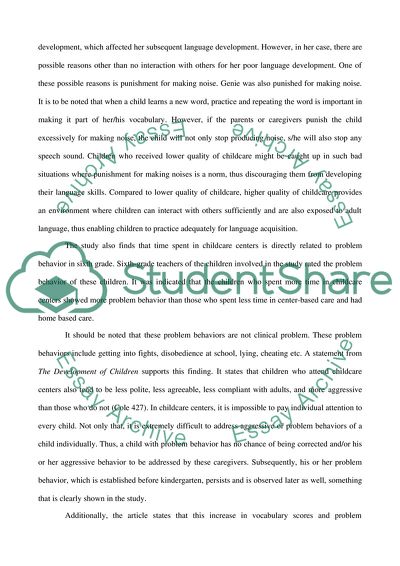Cite this document
(“The Correlation between Early Childcare and Language Development and Essay”, n.d.)
The Correlation between Early Childcare and Language Development and Essay. Retrieved from https://studentshare.org/psychology/1544869-the-correlation-between-early-childcare-and-language-development-and-problem-behavior
The Correlation between Early Childcare and Language Development and Essay. Retrieved from https://studentshare.org/psychology/1544869-the-correlation-between-early-childcare-and-language-development-and-problem-behavior
(The Correlation Between Early Childcare and Language Development and Essay)
The Correlation Between Early Childcare and Language Development and Essay. https://studentshare.org/psychology/1544869-the-correlation-between-early-childcare-and-language-development-and-problem-behavior.
The Correlation Between Early Childcare and Language Development and Essay. https://studentshare.org/psychology/1544869-the-correlation-between-early-childcare-and-language-development-and-problem-behavior.
“The Correlation Between Early Childcare and Language Development and Essay”, n.d. https://studentshare.org/psychology/1544869-the-correlation-between-early-childcare-and-language-development-and-problem-behavior.


